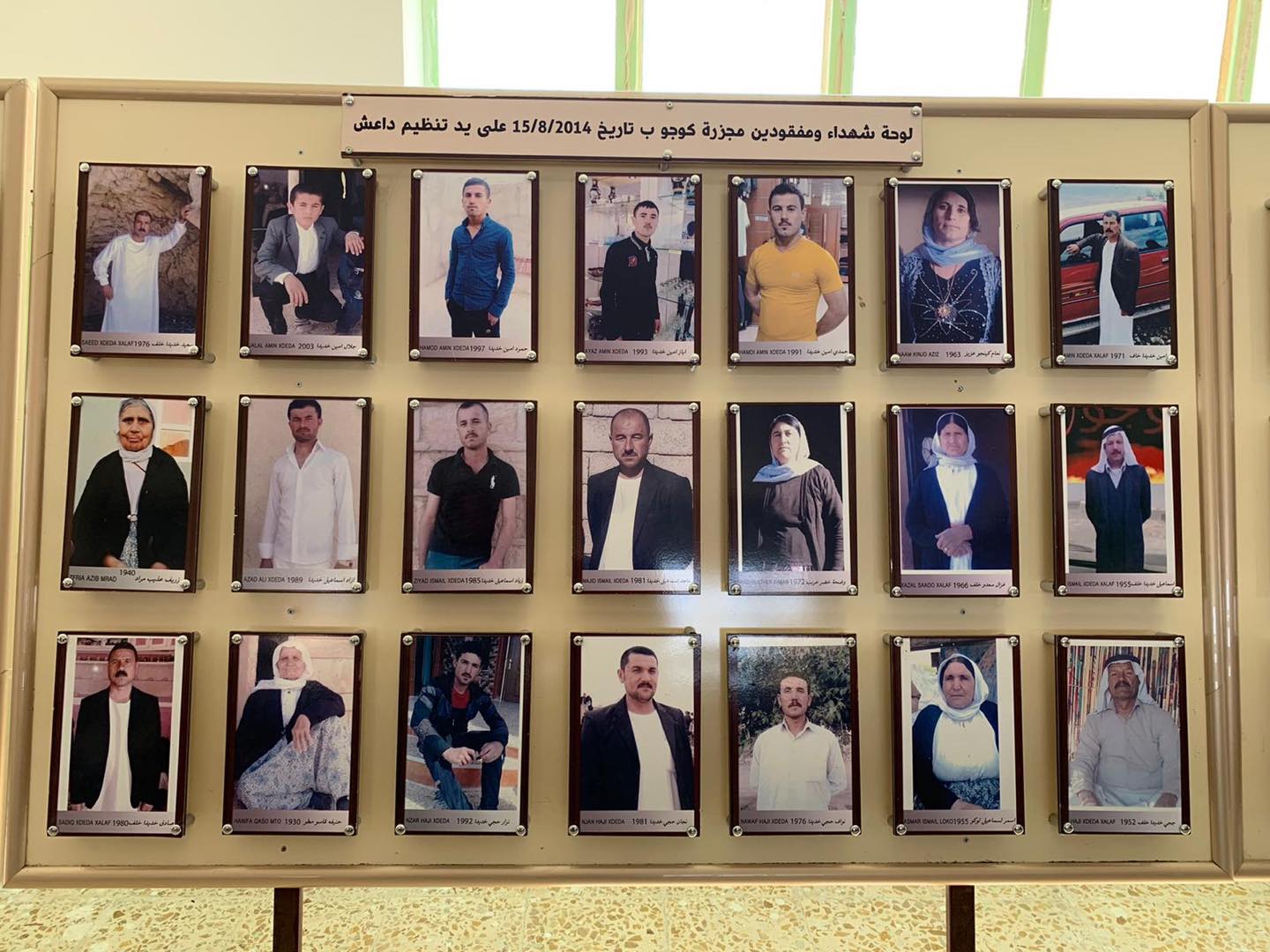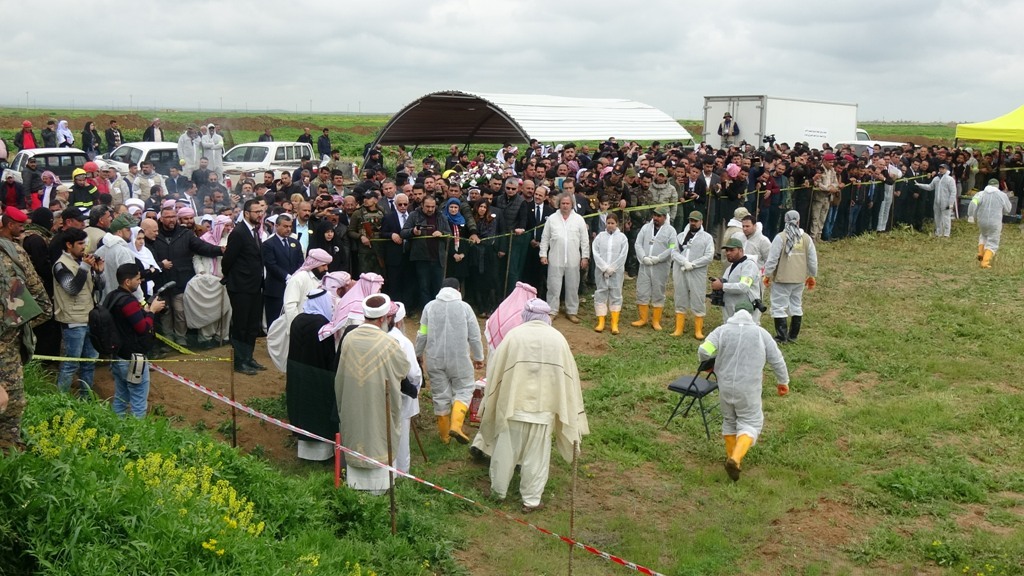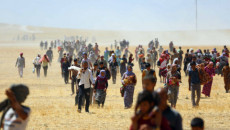The remains of villagers from Kocho massacred by ISIS in 2014, are still in Baghdad after more than a year has passed since they were sent for forensic examination. And despite that 100 of them have been identified, it is still not known when they could get a burial.
Kiché Amu Salo, who is from Kocho, said: "The remains of more than 100 victims have been identified, and they have been in the forensic medical department in Baghdad for a long time. Why aren’t they handed over to us? If the cause is the Coronavirus, then the situation may remain as it is for several more months."
Kiché had four brothers who were killed by ISIS when they were caught with 75 others. “For six years, we had only one request: the rescue of those who were kidnapped and exhuming the victims’ remains for reburial.”
“Four brothers of mine along with other relatives were killed in Kocho, and I escaped with my wounds. My brothers’ remains have been exhumed from the mass grave, but they are still in Baghdad for a year now,” said Kiché to KirkukNow.

Shingal, 2020 – pictures of a number of the victims and missing individuals from Kocho – Photo from Kocho-News Facebook page
The first mass grave the Iraqi government decided (on 15 March 2019) to uncover was one in the village of Kojo. 364 remains were exhumed and sent to Baghdad for forensic analysis.
The remains were supposed to be sent back to Shingal from Baghdad in a ceremony on 12 March 2020, to be reburied at the Kocho village cemetery on 14 March. But that was postponed to an unknown date due to the COVID-19 outbreak.
Nayef Jasim Qasim, Kocho’s commissioner, told KirkukNow: “The forensic examination process is still ongoing and 100 remains have been identified so far.” Adding that they are preparing to purchase coffins, so that once the COVID-19 virus becomes less of a threat, the remains could be immediately returned to Shingal.
A big cemetery has also been prepared in Kocho, where 300 of ISIS victims can be buried.
Qasim, as part of a delegation from Shingal, met with the Iraqi Prime Minister Mustapha al-Kadhimi on 3 August, and says that the PM has promised to meet the demands of the region’s residents, including doing what is necessary for the return of the remains.

Nineveh, 2019 – the first mass grave being excavated in Kocho – Photo by KirkukNow
The forensic teams tasked with excavating the mass graves in Shingal, have halted work since July 2019.
Ayman Mustafa, a judge in the Commission for Investigation and Documentation of the Kurdistan Regional Government, told KirkukNow: "The mission of the commission was to take blood samples from the families of the victims and kidnapped Ezidis. We’ve sent more than two thousand samples to Baghdad for identification."
The commission has worked in collaboration with the excavation team from Baghdad.
Ayman says that a substantial amount of evidence has been collected under the supervision of the United Nations team. "The responsibility now rests entirely with Baghdad and there is no new information about returning the remains of the victims and resuming the process of excavating the mass graves."
ISIS attacked Shingal district on 3 August 2014, and committed massacres throughout the region, including Kocho on 15 August. According statistics from the General Directorate of Ezidi Affairs in the Ministry of Endowments of the Kurdistan Regional Government, ISIS militants killed 2293 Ezidis.
According to those statistics, there are more than 80 mass graves in Shingal district, next to dozens of individual graves dating back to the period when ISIS controlled the district.
Ezidis commemorate the victims of the Kocho massacre in traditional manner in Stuttgart, Germany
Dawoud Murad Khatari, head of the public relations office at the Council of Families of Ezidi Victims, told KirkukNow: “We follow the issue on a daily basis and we are in contact with officials in Baghdad. The examination and identification of the remains hasn’t been stopped fortunately, but due to the Coronavirus, the work has slowed down.”
According to Kharari, officials in Baghdad are making efforts to finalize the identification process so that they could be reburied in their home regions.





